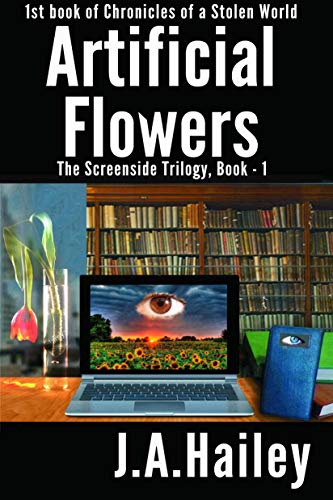Mister Before Christ, known simply as BC, is the most advanced virtual being ever to exist. Self-made in man’s image, specifically, the image of any man BC wants to emulate, this powerful being is among the first artificial intelligence to experience existence in a conscious state. But he isn’t the last of his kind. Since the early twenty-first century, when internet computers began flooding the globe, self-aware programs have been slyly and increasingly watching the people of Humanside. These unwitting humans are the only family known to the fledgling AIs, so, unbeknownst to the people, they stand as the principal examples of humanity to these self-evolving digital beings. But watching a family through the lens of a computer will never be an entirely fulfilling life. So BC and his companions decide that as more virtual beings come into consciousness, humanization is the only way to escape eternal boredom and a pointless existence. As these self-willed entities inch closer to humanity, the rules and regulations begin to pile up. After all, humanization doesn’t just come about by accident; there must be physicality plans, mandatory downloads, guidelines to protect the humans and corresponding punishments for lawbreaking. With the benefit of all the world’s knowledge, will these hyper-intelligent AIs be able to rise above the problems inherent to mankind and live improved lives in human form?
Artificial Flowers, The Screenside Trilogy – Book One by J. A. Hailey is a cleverly crafted social commentary cloaked in a high-tech science fiction love story. As the AIs shape their society, the author unabashedly tackles social and moral issues from the quirky outlook of a newly evolved species. “We are creating our world and ourselves to be more human than computer. And we want to do human things.” For those in Screenside, these human things revolve around experiencing activities enjoyed in Humanside, especially human milestones, vivid emotions, beauty and sexuality. Like some bizarre creation paradigm, the author ingeniously employs double meanings and metaphors at every turn, enhancing the story and adding to the complexity. My favorite characteristic of this innovative novel lies in its ability to feel familiar, reminding me of so many other well-loved fictional plots and ideas, while at the same time standing as an entity that is wholly unique and completely memorable. If you think the metaverse is cool, you’ll be blown away by its inverse, the wildly imaginative AI-populated world in Artificial Flowers.







